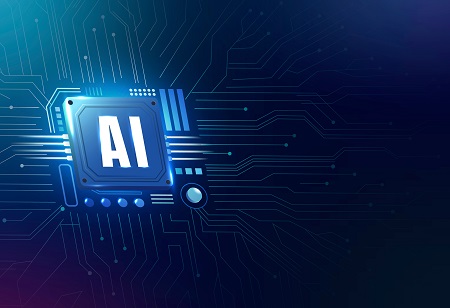
According to research published by Statista, the AI Healthcare market was valued at $11 Billion in 2021 and is estimated to reach $187 Billion in 2030. This massive valuation shows that integrating generative AI will change the way the healthcare system operates this decade. It is predicted to be implemented everywhere, from patient care to administrative tasks.
The system had shown cracks during the duration of the pandemic. Experts have come up with solutions to rectify the weakness and improve the already existing infrastructures, ranging from patient diagnosis, which, according to Harvard’s School of Public Health says it may reduce treatment costs by 50% while simultaneously improving health outcomes by 40% to clerical tasks.
Generative AI has proven to be a game-changer in medical diagnostics and imaging. The ability of Generative AI models to analyze complex medical images, such as MRIs and CT scans, has significantly improved the accuracy and speed of diagnosis. These models have identified subtle patterns and anomalies that are challenging for human eyes to detect. This has not only expedited the diagnostic process but also ensures early detection of diseases, leading to more effective and timely treatments.
Aidoc is a leading company specializing in radiology AI. Their platform utilizes deep learning algorithms to analyze medical images, including CT scans and MRIs. By flagging abnormalities and prioritizing urgent cases, Aidoc's technology assists radiologists in making faster and more accurate diagnoses.
"Enterprise architects must integrate real-time data solutions with existing systems and data sources to provide a complete picture," Niraj Naidu, APJ Head of Field Engineering, Datastax.
One of the most promising aspects of Generative AI in healthcare is its potential to create personalized treatment plans for patients. It can analyze vast datasets of patient information, including genetic makeup, medical history, and lifestyle factors, and can generate tailored treatment recommendations. This level of personalization can lead to more effective treatments, reduced side effects, and improved patient outcomes. This has allowed healthcare professionals to leverage this technology and move away from a one-size-fits-all approach and provide individualized care.
"Using data analytics is a must of risk management. We need to predict which steps of ours, other departments or even external parties will have risk impact and adjust for it timely so we stay within our share-holders risk appetite,"Kirill Odintsov, Head, Home Credit Indonesia.
Tempus combines data analytics and machine learning to deliver personalized cancer care. The company analyzes clinical and molecular data to help oncologists tailor treatment plans for individual patients. Tempus aims to improve cancer outcomes by leveraging technology to understand the unique characteristics of each patient's disease.
Traditional drug discovery is a time-consuming and costly process. Generative AI has been a powerful tool in expediting drug discovery by predicting potential drug candidates, optimizing molecular structures, and simulating their interactions with biological systems. This has not only accelerated the research and development phase but also has the potential to bring down the overall cost of bringing new drugs to market. Healthcare professionals have benefitted a lot from a broader range of treatment options, leading to more effective treatments for various diseases.
BenevolentAI employs AI to accelerate drug discovery and development. The company's platform integrates vast biomedical datasets to identify potential drug candidates, predict their efficacy, and optimize molecular structures. By leveraging Generative AI, it aims to bring new drugs to market more efficiently.
Generative AI has assisted healthcare professionals in making more informed and accurate clinical decisions. By analyzing vast amounts of patient data, including electronic health records and real-time monitoring data, AI models have provided insights that may not be immediately apparent to human practitioners. This has led to early identification of potential complications, optimization of treatment plans, and ultimately better patient outcomes. The collaboration between healthcare professionals and Generative AI creates a synergistic approach to decision-making, combining human expertise with the analytical power of AI.
"Knowing what to invest in and ensuring that new methodologies are launched accurately and quickly, comes down to three things – what you have, what you know, and who you know," Zoya Brar, Founder, CORE Diagnostics.
IBM Watson Health utilizes AI to assist healthcare professionals in making more informed clinical decisions. Through analyzing patient data, medical literature, and clinical expertise, Watson Health provides insights that support physicians in diagnosing and treating various conditions. It enhances decision-making by presenting relevant information at the point of care.
Generative AI is not only valuable in diagnosing and treating existing conditions but also in predicting and preventing potential health issues. By analyzing historical patient data and identifying risk factors, AI models have predicted the likelihood of certain diseases or complications. This has enabled healthcare professionals to proactively implement preventive measures and interventions, reducing the overall burden on healthcare systems and improving the quality of patient care.
Zebra Medical Vision focuses on predictive analytics for preventive care through AI-powered imaging analytics. The company's algorithms analyze medical imaging data to predict and identify potential health risks, allowing healthcare professionals to intervene early and implement preventive measures.
Generative AI is undeniably transforming the healthcare landscape, offering unprecedented opportunities for improved diagnostics, personalized treatments, and enhanced patient care. Healthcare professionals stand to benefit from the collaborative partnership between human expertise and artificial intelligence, ultimately leading to more effective, efficient, and patient-centric healthcare delivery.
We use cookies to ensure you get the best experience on our website. Read more...